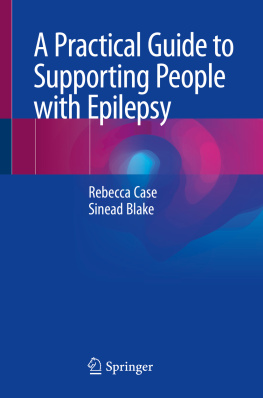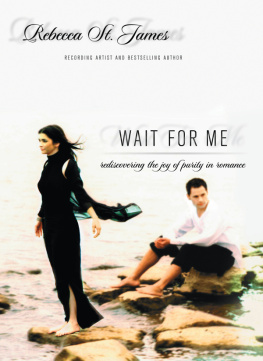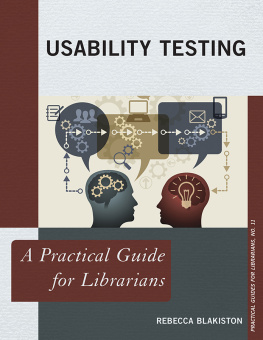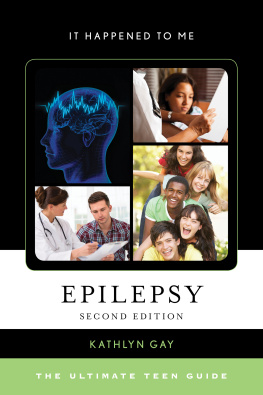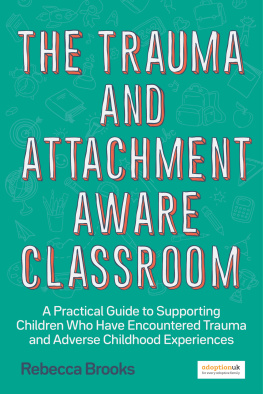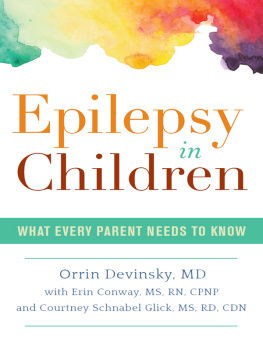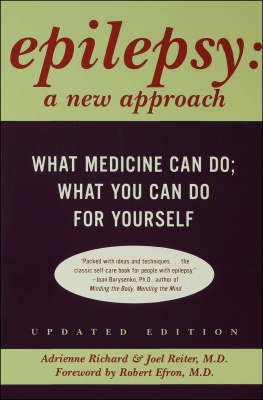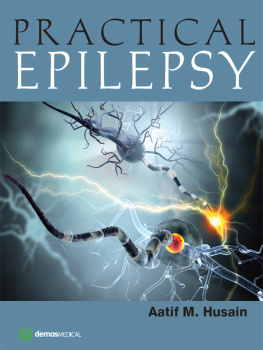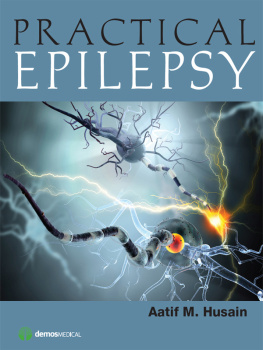Rebecca Case - A Practical Guide to Supporting People with Epilepsy
Here you can read online Rebecca Case - A Practical Guide to Supporting People with Epilepsy full text of the book (entire story) in english for free. Download pdf and epub, get meaning, cover and reviews about this ebook. year: 2020, publisher: Springer International Publishing, genre: Children. Description of the work, (preface) as well as reviews are available. Best literature library LitArk.com created for fans of good reading and offers a wide selection of genres:
Romance novel
Science fiction
Adventure
Detective
Science
History
Home and family
Prose
Art
Politics
Computer
Non-fiction
Religion
Business
Children
Humor
Choose a favorite category and find really read worthwhile books. Enjoy immersion in the world of imagination, feel the emotions of the characters or learn something new for yourself, make an fascinating discovery.
- Book:A Practical Guide to Supporting People with Epilepsy
- Author:
- Publisher:Springer International Publishing
- Genre:
- Year:2020
- Rating:4 / 5
- Favourites:Add to favourites
- Your mark:
- 80
- 1
- 2
- 3
- 4
- 5
A Practical Guide to Supporting People with Epilepsy: summary, description and annotation
We offer to read an annotation, description, summary or preface (depends on what the author of the book "A Practical Guide to Supporting People with Epilepsy" wrote himself). If you haven't found the necessary information about the book — write in the comments, we will try to find it.
A Practical Guide to Supporting People with Epilepsy — read online for free the complete book (whole text) full work
Below is the text of the book, divided by pages. System saving the place of the last page read, allows you to conveniently read the book "A Practical Guide to Supporting People with Epilepsy" online for free, without having to search again every time where you left off. Put a bookmark, and you can go to the page where you finished reading at any time.
Font size:
Interval:
Bookmark:
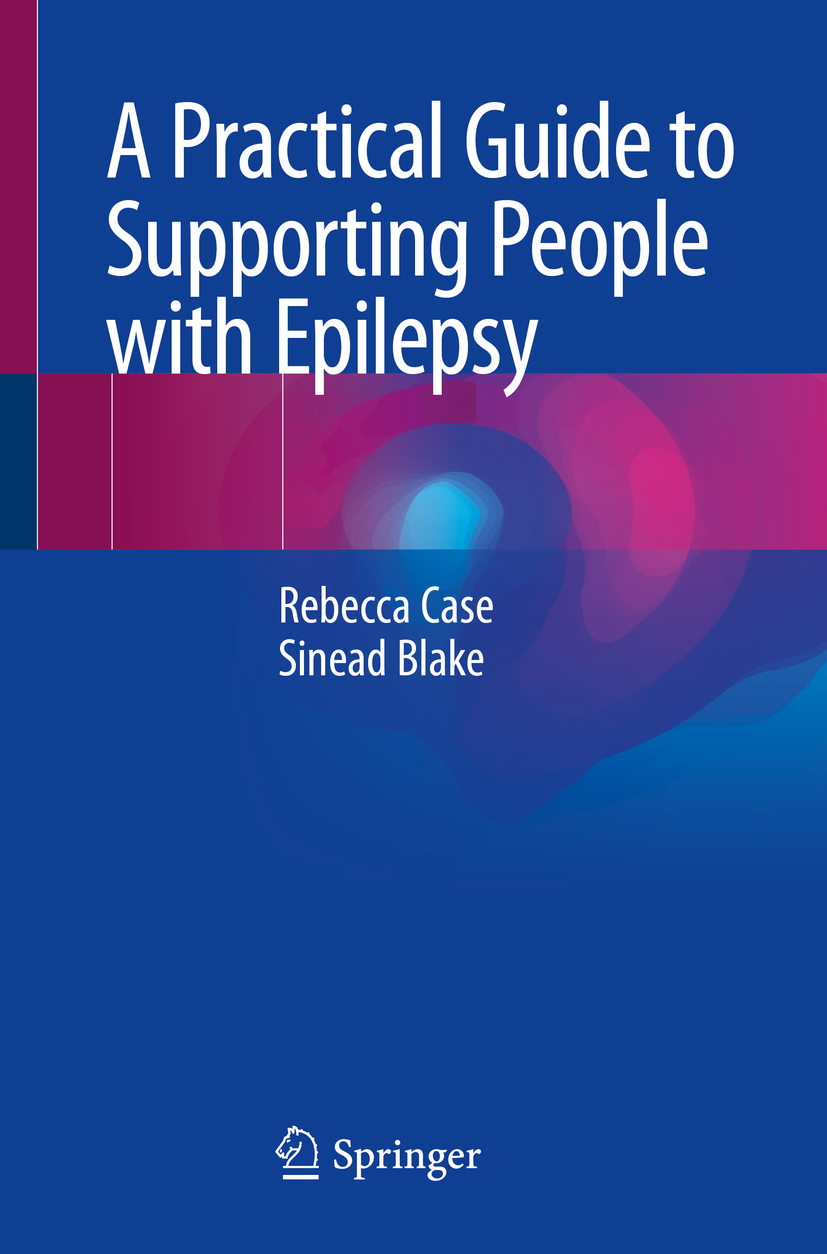

This Springer imprint is published by the registered company Springer Nature Switzerland AG
The registered company address is: Gewerbestrasse 11, 6330 Cham, Switzerland
Historically, epilepsy has been thought about in many different ways. The term epilepsy comes from the ancient Greek language meaning to possess. It was felt the Ancient Greek Gods or supernatural forces were responsible for causing seizures (Smithson and Walker ). Later, Hippocrates described epilepsy as an organic disease of the brain, being hereditary as with other diseases. Nowadays most cultures understand it as a neurological disorder of the brain, however some places in the world still view it differently, and may still see it as a mental health condition or even witch craft.
Epilepsy is a neurological condition, which results in someone having recurrent (more than 1), unprovoked epileptic seizures. During a seizure there will be an abnormal increase in electrical activity in the brain. It can happen in one small area (focal) or across the whole brain (generalised) and so can be divided into two main types of epilepsy (focal or generalised epilepsy). The symptoms can present very differently depending on what part of the brain is affected, the cause and the age of the person.
At least two unprovoked (or reflex) seizures occurring over 24 h apart from each other (a reflex seizure is an epileptic seizure which is induced by a stimuli) (WHO ).
One unprovoked (or reflex) seizure with the probability of further seizures (a risk of at least 60%). This risk can be increased in certain situations, for example if an underlying cause for the seizures has been found so the likelihood of further seizures is considered high.
Diagnosis of an epilepsy syndrome.
Epilepsy is considered to be resolved if a person has an age dependent syndrome and they are past the relevant age. Or if the person has been seizure free for 10 years and off antiseizure medications for 5 years (Fisher et al. ).
Brief
Stereotypedthey look the same for each person
Usually stop on their own (self-limiting)
An Epilepsy Syndrome is when a group of clinical characteristics occur for a person, such as seizure types, age it started, EEG results, genetic factors, prognosis and response to medication.
Many people can have a single, unprovoked seizure and never go on to have a further seizure. This is why epilepsy is diagnosed after more than one unprovoked seizure. Treatment is not usually started until a person has had more than oneunprovokedseizure.
People can have seizures which are provoked, often referred to as acute provoked seizures. This can occur due to a number of different acute clinical situations. It can be due to metabolic changes, for example low sodium levels can cause seizures. They may occur after an anaesthetic. Provoked seizures can be due to acute drug or alcohol abuse, or drug or alcohol withdrawal or immediately or in the few hours following a head injury. A febrile convulsion in children is considered an acute seizure. This is not considered to be epilepsy as the seizures are directly related to the provoking factor and would not have occurred without it.
Some conditions can look like seizures but they are actually caused by something else. For example some cardiac problems can look like a seizure, including fainting (Syncope). Sometimes, psychological conditions, such as panic attacks or symptoms such as hallucinations can be misinterpreted as a type of seizure. Migraine symptoms, such as visual disturbances may also appear as a seizure. The most common conditions which are misdiagnosed as epilepsy are syncope and dissociative seizures.
Although many terms may be used for this condition, terms such as psychogenic, functional or pseudo-seizures can be unhelpful as they can make it sound as though the individual has control over the attacks.
This is a condition that involves the person experiencing an event similar to an epileptic seizure. However, it is not associated with electrical disturbances in the brain. It is thought that the attacks or seizures are caused by emotional processing difficulties, often due to a stressful or traumatic event, which can be at the time and/or in the past. It is not unusual for people to not be aware of what has caused the dissociative seizures and to find it difficult to accept the diagnosis.
Font size:
Interval:
Bookmark:
Similar books «A Practical Guide to Supporting People with Epilepsy»
Look at similar books to A Practical Guide to Supporting People with Epilepsy. We have selected literature similar in name and meaning in the hope of providing readers with more options to find new, interesting, not yet read works.
Discussion, reviews of the book A Practical Guide to Supporting People with Epilepsy and just readers' own opinions. Leave your comments, write what you think about the work, its meaning or the main characters. Specify what exactly you liked and what you didn't like, and why you think so.

